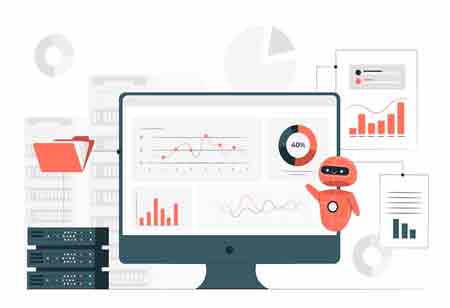THANK YOU FOR SUBSCRIBING
Be first to read the latest tech news, Industry Leader's Insights, and CIO interviews of medium and large enterprises exclusively from Hrtech Outlook
THANK YOU FOR SUBSCRIBING

By
HR Tech Outlook | Wednesday, April 30, 2025
Stay ahead of the industry with exclusive feature stories on the top companies, expert insights and the latest news delivered straight to your inbox. Subscribe today.
AI is transforming how companies identify and engage candidates, moving beyond traditional methods to enhance efficiency and effectiveness.
Fremont, CA: The rapid rise of AI has significantly impacted various aspects of business, with talent optimization being one of the key areas undergoing transformational change. AI-powered tools revolutionize how companies attract, assess, develop, and retain talent. These innovations help organizations enhance their hiring processes and align talent strategies with long-term business goals, ensuring that the right people are positioned in the right roles at the correct times. One of the most notable advancements in talent optimization through AI is its impact on the recruitment process.
AI reshapes talent development by enabling personalized learning and career growth pathways. Traditional training programs often use a one-size-fits-all approach. Still, AI-powered platforms can tailor development plans to individual employees based on their skills, career goals, and performance data. AI algorithms can analyze employee data—such as past performance, strengths, weaknesses, and areas for growth—to suggest personalized learning paths. These platforms can recommend courses, certifications, and skill-building opportunities that align with the employee's aspirations and the company's needs.
AI-powered learning management systems (LMS) can deliver customized training modules and real-time feedback, accelerating skill development and ensuring employees stay motivated and engaged in their professional growth. AI can help identify high-potential employees and provide them with opportunities for leadership development. It enables companies to invest in talent with the highest potential for future leadership roles, aligning employee growth with organizational objectives. Traditional performance management systems are often subjective, leading to inconsistencies and a need for actionable insights.
AI makes performance reviews more data-driven, objective, and continuous by analyzing real-time employee performance. AI-powered performance management tools collect data from various sources—such as project outcomes, feedback from peers and managers, and even social interactions—to provide a comprehensive view of an employee's performance. AI can help provide real-time feedback to employees, offering suggestions on improving or capitalizing on their strengths.
Companies can make data-driven decisions about promotions, raises, and development opportunities, ensuring more equitable and effective talent management. AI is enhancing talent optimization through improved employee retention and engagement strategies. AI tools can analyze employee data—such as work patterns, communication behaviors, and job satisfaction surveys—to predict when employees might be at risk of leaving. These tools can flag potential issues such as burnout, disengagement, or dissatisfaction, enabling HR departments to retain valuable talent proactively.
AI can help organizations foster a more engaging work environment by identifying what drives employee satisfaction and productivity. AI tools can recommend personalized work experiences, such as flexible scheduling, remote work options, or wellness initiatives tailored to individual preferences. The insights help businesses create environments that support employee well-being and long-term job satisfaction, reducing turnover and the associated costs. AI optimizes workforce planning by providing deep insights into labor market trends, employee skills, and organizational needs. With AI, HR teams can make more informed decisions about workforce composition, talent allocation, and succession planning.
AI tools analyze historical data and workforce trends to predict future talent needs. AI can help identify areas where talent is underutilized and suggest better ways to allocate resources for maximum productivity. AI-driven advancements in talent optimization are fundamentally changing how companies approach workforce management. From recruitment and personalized employee development to performance management, retention strategies, and workforce planning, AI is making talent optimization more innovative, data-driven, and efficient.



